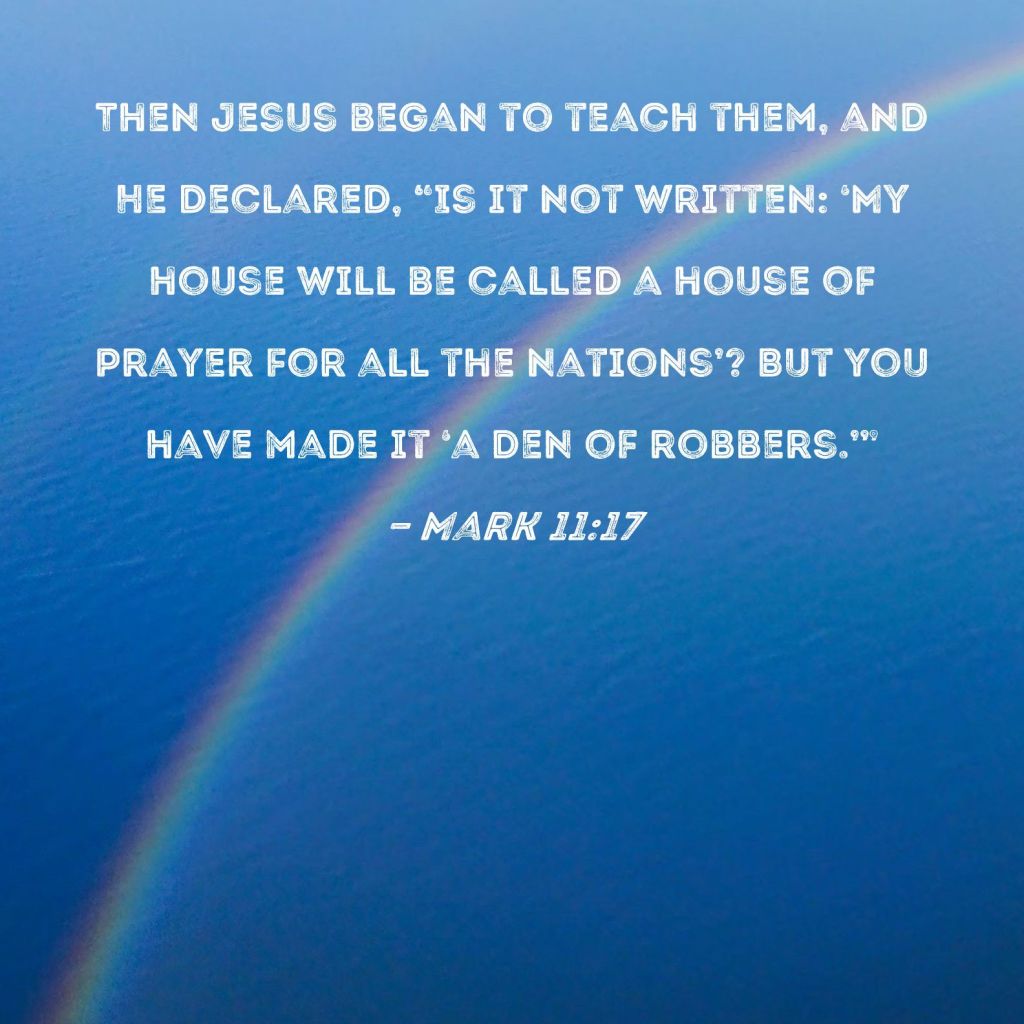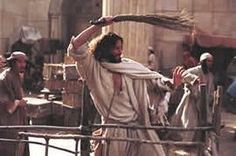
Many of us could be forgiven for thinking that Holy Week, which started yesterday with Palm Sunday, is about Jesus’ triumphant entrance into Jerusalem and then a pause until the last Supper on Maundy Thursday. It is true to say the majority focus of the Church is upon those days and then a rollercoaster through Good Friday, Holy Saturday towards the joy of Easter Day. However, Jesus was not idle in the 3 days in-between and the shift from that triumphant entrance to the “crucify him” of Good Friday is clearer because of the events of the whole week – they give us a truer perspective. In Mark’s Gospel after Jesus enters Jerusalem on Palm Sunday he enters the Temple and has a look around before heading back to Bethany with the 12. Mark then says, “On the following day…” (Mark 11.12), that is Holy Monday – today. Jesus is seen heading into Jerusalem and is said to be “hungry” (Mark 11.12). He sees a fig tree in leaf, but not yet ready to bear fruit, as it wasn’t the season to bear fruit. Jesus, in hunger and possibly stressed due to what is ahead of him, rebukes the tree saying “May no one ever eat fruit from you again” (Mark 11.14). This gives us a sign of the pressure and potential pain ahead for both Jesus and his followers but also reminds us that Jesus is both fully divine and fully human, and it is out of that humanity – his hunger and stress – that he speaks.

What happens next is truly one of the most dramatic moments in Jesus’ ministry. He enters the temple and starts driving those who are selling and buying in the temple out and overturns the tables of the money changers too. In the Temple forecourt traders would sell pigeons and turtle doves for sacrifice in the Temple and the money changers were there to change rolled money from the “unclean” Roman coinage into the Jewish shekels. This was all deemed both necessary and sensible by the Religious authorities of the time. However, much profiteering and, possibly, extortion would be happening. Hence, when Jesus quotes from Isaiah 56.7 “My house shall be a house of prayer for all the nations” and then says “But you have made it a den of robbers”, he is not talking about the trading that is ongoing but the profiteering. He cannot bear to see the poor and vulnerable being abused at the hands of the rich and powerful. We all pay for goods, we all pay tax, but the poorest struggle the most because out of their scarcity they struggle to pay for everything. For example when it comes to travel the better off can pay in advance or buy season tickets that will bring the overall cost down. However, if you are on a shoestring budget that isn’t possible. Hence, it is the poorest who pay more. It is also the poorest who get extorted the most. Jesus’ attack is on those who extort the weakest. This, of course, angers the Religious authorities – their Temple is disrupted by Jesus and he is implicating them in the extortion he is railing against. Thus, in Mark 11.18 it says that they “kept looking for a way to kill him”. The scene is set for confrontation which will go on throughout this week.